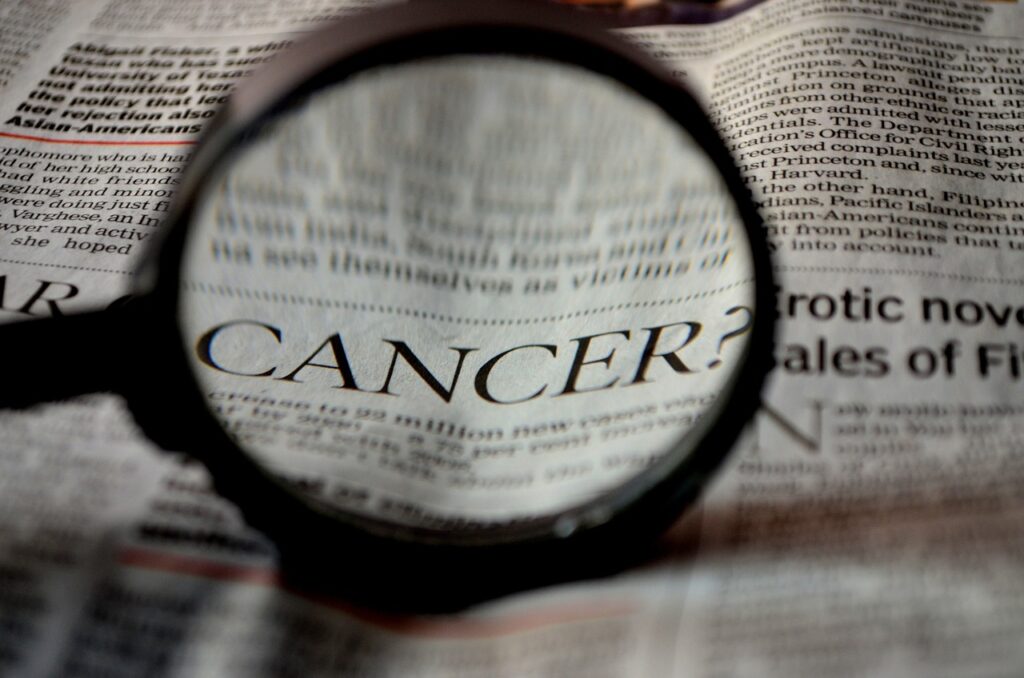What does it mean to dream about Cancer?
To have one successfully treated in a dream, denotes a sudden rise from obscure poverty to wealthy surroundings. To dream of a cancer, denotes illness of some one near you, and quarrels with those you love. Depressions may follow to the man of affairs after this dream. To dream of a cancer, foretells sorrow in its ugliest phase. Love will resolve itself into cold formality, and business will be worrying and profitless.
Dreams Involving Cancer: Symbolism and Interpretation
In the realm of dream interpretation, encountering serious ailments, such as cancer, serves as a symbolic reflection of one’s life, prompting a reassessment of priorities and the need for significant change.
General Interpretation of Cancer in Dreams: When cancer appears in a dream, it signifies an invitation for the dreamer to view their life from a fresh perspective. The symbolism suggests the necessity of discarding negativity, shedding undesirable elements, and initiating a new chapter of existence. This powerful imagery prompts introspection and encourages a deliberate shift towards a more positive and fulfilling life.
Detecting Cancer in a Dream: If a dream features the detection of cancer without specifying the affected organ, it conveys a message of physical and emotional exhaustion. The dream serves as a vivid reminder that enduring perpetual emotional breakdowns and teetering on the brink of collapse cannot persist indefinitely. It acts as a call to rest, rejuvenate, and release negative energy, allowing the dreamer to better address accumulated challenges or, if necessary, let go of uncontrollable circumstances.
Specific Organs Affected by Cancer: Dreams depicting cancer affecting specific organs carry tailored meanings. For example, if the dream portrays cancer in the legs, it forewarns of impending insurmountable obstacles in the dreamer’s path, likely stemming from external factors. If the hand is afflicted with cancer, it suggests an inability to manage a demanding yet lucrative job, prompting the dreamer to make the correct decision, potentially winding up certain affairs.
Dreams of Personal Recovery from Cancer: For individuals actively battling cancer in reality, dreaming of personal recovery serves as an optimistic sign. This dream signifies a genuine chance for healing, combining the potential of medical treatment, psychological resilience, and the overall mobilization of the body to triumph over the oncological disease.
Dreams Involving Family Members and Cancer: Dreams where a family member suffers from cancer imply condemnation of their actions and concern for their well-being. It serves as a symbolic reminder of the care loved ones require, prompting the dreamer to be attentive and supportive. If the dream takes a somber turn, depicting a relative succumbing to cancer, it may indicate potential misunderstandings or conflicts between the dreamer and the family member.
Receiving Good News in Dreams of Stranger’s Cancer: On a positive note, dreams featuring cancer striking a stranger convey optimistic forecasts. The dreamer can anticipate receiving favorable news in the near future. This unexpected positive turn of events might manifest as good news or uplifting developments in various aspects of the dreamer’s waking life.
In summary, dreams involving cancer offer a symbolic lens through which individuals can gain valuable insights into their lives, inspiring positive change, self-care, and the pursuit of a more fulfilling existence.
Hinduism
Interpreting Dreams of Having Cancer: Symbolism and Meaning
Dreaming of having cancer is often considered a foreboding symbol with negative connotations, indicating potential challenges and emotional distress in various aspects of life.
General Interpretation: Dreams featuring the dreamer having cancer are viewed as ominous, suggesting that unsettling news about health—either personal or related to someone close—will be forthcoming. The dream signals the onset of unexpected problems, potentially leading to emotional and financial setbacks. This ominous imagery may stem from negative thinking patterns or exposure to misleading information, symbolically representing a state of vulnerability or weakness.
Symbolic Implications: Symbolically, the dream implies weakness, emphasizing the need for the dreamer to address internal struggles, negative influences, or harmful habits. It serves as a cautionary signal, urging the dreamer to be mindful of their well-being and proactively manage potential health concerns.
Postponed Plans: Dreams of having cancer may also signify the need to delay or reconsider planned activities or projects. The dreamer might encounter unforeseen obstacles or disruptions that require a reassessment of their goals and timelines.
Dreamer’s Absence in the Dream: If the dream features the dreamer’s absence, it serves as a warning to pay attention to habits that may be spiraling out of control. Additionally, it suggests that a pressing issue may escalate, demanding prompt attention to prevent further complications. Neglecting health checkups and unresolved issues could lead to detrimental consequences.
Abnormalities in Others: Observing abnormalities in others within the dream suggests the dreamer will be compelled to confront the suffering of those around them. This may involve spending time in somber or challenging environments, emphasizing the importance of empathy and support during difficult times.
Emotional Impact and Unhappiness: Dreams of having cancer may evoke strong negative emotions, causing the dreamer to wake up feeling unhappy or terrified. This emotional response underscores the significance of addressing mistakes and rectifying life choices to avoid potential chaos and upheaval.
Note on Daytime Influence: It’s essential to distinguish between dreams influenced by daytime exposure to cancer-related content and those that occur naturally. Dreams influenced by external factors may lack the profound symbolism found in naturally occurring dreams.
In summary, dreams of having cancer serve as cautionary symbols, urging the dreamer to prioritize health, address negative influences, and navigate potential challenges with resilience and proactive decision-making.
